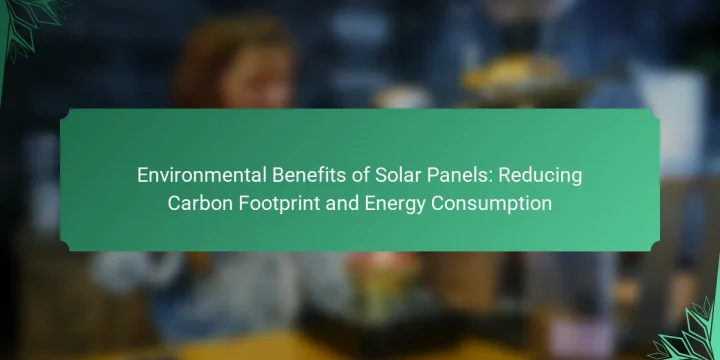
What are the Economic Advantages of Solar Panels? The economic advantages of solar panels include significant cost savings on electricity bills. Homeowners can save up to 50% on their energy costs by using solar energy. Additionally, solar panels increase property value. A study by the National Renewable Energy Laboratory found that homes with solar systems sell for about 4.1% more than comparable homes without them. Government incentives also enhance the financial benefits of solar panels. Tax credits, such as the Federal Investment Tax Credit, allow homeowners to deduct a percentage of the installation costs from their federal taxes. This credit can cover up to 26% of the installation expenses. Moreover, solar energy reduces reliance on fossil fuels, which can lead to lower energy prices in the long run. As the…








